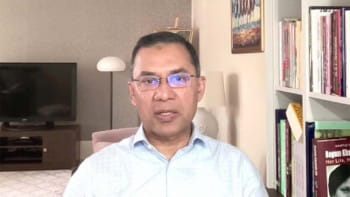Myanmar’s admission of killing Rohingyas a vital step: US envoy

Myanmar's admission that soldiers were involved in the murder of 10 Muslims in September was an important step and the United States hoped it would be followed by more transparency and accountability, the US ambassador said on Thursday.
The military said on Wednesday its soldiers had killed 10 captured Rohingya Muslim "terrorists" at the beginning of September, after Buddhist villagers had forced the men into a grave they had dug.
It was a rare acknowledgment of wrongdoing by the Myanmar military during its operations in the western state of Rakhine.
"The military's acknowledgment that the security forces were involved in the killing of these 10 individuals is an important step," Ambassador Scot Marciel said in a forum on media freedom with journalism students and reporters in the main city Yangon.
The army launched a sweeping counteroffensive in northern Rakhine in response to Rohingya militant attacks on Aug. 25, triggering an exodus of more than 650,000 Muslim villagers to Bangladesh.
The United States has previously said the operation amounted to "ethnic cleansing". Myanmar denies that, saying its forces were carrying out legitimate counterinsurgency operations.
The military announced on Dec. 18 that a mass grave containing 10 bodies had been found at the coastal village of Inn Din, about 50 km (30 miles) north of the state capital Sittwe. The army appointed a senior officer to investigate.
A statement from the military on Wednesday said its investigation had found that members of the security forces had killed the 10 and that action would be taken against them.
Marciel denounced the coordinated attacks by Rohingya militants that sparked the latest violence, but said the United States had information suggesting the response by Myanmar's military "involved a lot of human rights violations".
'GOOD FOR DEMOCRACY'
The U.S. ambassador said he hoped the acknowledgment by the military that soldiers were involved in the killings at Inn Din would bring more openness and action against perpetrators of abuses.
"We hope it is followed up by more transparency and by holding those responsible accountable," said Marciel.
"I would stress this should be done, not as a favour to the international community but because it's good for the health of Myanmar's democracy."
The military said legal action would be taken against members of the security forces who violated their rules of engagement in killing the 10 suspected insurgents, and against the villagers involved.
It said the 10 had been captured after security forces had come under attack from around 200 insurgents.
The captives should have been handed over to police, the army statement said, but with militants mounting continuous attacks and destroying two military vehicles, "there were no conditions to transfer the 10 Bengali terrorists to the police station and so it was decided to kill them".
The military investigation was led by Lieutenant General Aye Win. The same officer had been in charge of a wider inquiry into the conduct of troops in the conflict that concluded in a report in November that no atrocities had taken place.
Myanmar's armed forces have for decades been accused by human rights groups and Western governments of abuses in the country's myriad ethnic conflicts, but it has been rare for soldiers to be held accountable.
An admission by a top general in July 2016 that soldiers had killed five villagers during an interrogation in northern Shan State was seen at the time as unprecedented. Seven soldiers were subsequently jailed for five years with hard labour.


 For all latest news, follow The Daily Star's Google News channel.
For all latest news, follow The Daily Star's Google News channel. 







Comments